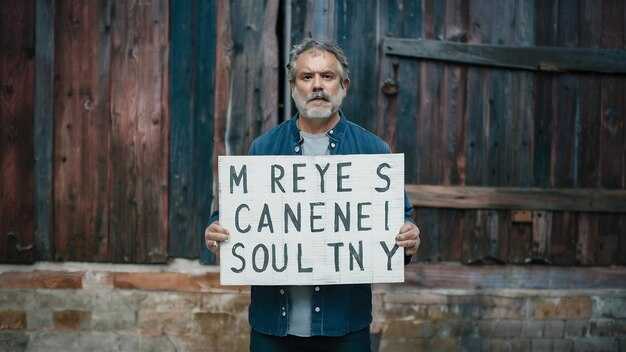Some readers have voiced concern that these messages underplay the gravity of marital commitment, so let it be stated plainly: the bond of marriage deserves deep respect. Divorce is not a decision to be taken lightly. Growing up in a fractured family often makes the pain and ripple effects painfully clear — it affects every member of the household, including the person who initiates the split. Every effort should be made to honor the promise of marriage. What cannot be defended, though, is telling someone to remain in a dangerous situation, insisting they surrender healthy boundaries with their partner, or endorsing the idea that a spouse may treat the other however they wish because a vow was made. That is neither love nor fidelity — it is perilous. If a partner is abusing the other emotionally, psychologically, financially, or, above all, physically, the “commitment” argument no longer applies; those vows were violated long before separation was considered. Was there ever a wedding promise that declared one person’s body or dignity the property of the other, granting permission to hurt, demean, or neglect them without apology? No. What was promised was to love, honor, and cherish, to protect the union through mutual respect and sacrifice. It’s striking how easily commitment is questioned when someone leaves, even though that same person may have been the one urging counseling while the other refused to participate, or the one trying to raise hard but necessary conversations and being dismissed as “needy,” shut down, or met with escalation so no real progress could occur. Supporting marriages staying intact is valuable, but stop equating commitment with merely staying married. True commitment is an active pursuit of the relationship’s protection and flourishing. It recognizes that how a person feels loved or ignored matters. It means offering respect, valuing one another, and making mutual sacrifices. Are both partners investing in the health, safety, and growth of their intimacy, friendship, and trust? Are they seeking ways to share burdens, learning about emotional connection, and deliberately strengthening their bond together? If those priorities are being refused, then it’s either fear that continues to wound the relationship or a commitment only to preserving power and control. Which is it?
Practical guidance can help translate these principles into safer, healthier choices. Below are signs to watch for, concrete steps to protect yourself or a loved one, and constructive ways to rebuild genuine commitment when both partners are willing to change.

Recognizing unhealthy patterns and coercive control
- Frequent belittling, humiliation, or blaming that leaves one partner feeling worthless or fearful.
- Isolation from friends, family, or support networks—whether overt or subtle pressure to cut ties.
- Controlling access to money, transportation, or important documents that limits autonomy.
- Threats, intimidation, or any physical violence; escalating anger that damages safety or trust.
- Gaslighting—repeatedly denying or minimizing your experience so you doubt your memory or judgment.
When couples therapy is and isn’t appropriate
- Couples therapy (e.g., Emotionally Focused Therapy, the Gottman approach) can be powerful when both partners are committed, safe, and willing to do the work. It is most effective when neither partner uses therapy to further manipulate or control the other.
- If there is ongoing physical violence, threats, coercive control, or serious power imbalance, individual therapy and a safety plan should come first; joint work can put the survivor at greater risk and is not recommended until safety and accountability are established.
Safety and practical steps
- If you are in immediate danger, call local emergency services right away.
- Create a safety plan: identify a safe place to go, a trusted person to contact, and steps for leaving quickly if needed. Consider a code word with friends or family to signal danger.
- Keep important documents (ID, financial records, custody papers) accessible or stored safely with someone you trust. If possible, maintain or open a separate bank account and save small amounts incrementally.
- Document incidents (dates, descriptions, photos of injuries) and keep records in a secure location; this can be important for legal protection later.
- Seek medical care for injuries and ask providers to document them. Reach out to local domestic violence organizations for confidential assistance—shelter, legal advocacy, and counseling are common services.
Rebuilding healthy commitment
- Mutual accountability: true commitment requires both partners to acknowledge harm, take responsibility, and demonstrate consistent behavioral change over time.
- Develop shared rituals of connection—regular check-ins, agreed-upon ways of resolving conflict, and predictable responsibilities that reduce resentment and imbalance.
- Learn and practice communication skills: use “I” statements, reflective listening, timed pauses to avoid escalation, and problem-solving that clarifies needs rather than attacking character.
- Invest in individual growth as well as shared growth—therapy, support groups, and education about healthy relationships strengthen each person’s capacity to contribute positively.
Resources
- If you are in the United States, the National Domestic Violence Hotline is available 24/7 at 1‑800‑799‑SAFE (7233) and via text or chat on their website; they provide confidential support and referrals.
- Outside the U.S., contact local domestic violence hotlines, social services, or your country’s emergency number. International directories and local advocacy groups can connect you to culturally appropriate assistance.
- Legal clinics, family lawyers, clergy, and trained counselors can help you understand options for protection orders, custody concerns, and financial safety—ask local domestic violence programs for referrals to trusted professionals.
Commitment should uplift, protect, and deepen mutual flourishing. When it becomes a tool for control or a refuge for harm, it has lost its moral force. Honor the vow by choosing relationship practices that promote safety, respect, and real sacrifice for one another’s wellbeing—and seek help when the situation exceeds what you can safely manage on your own.


 Commitment means MORE than not Getting Divorced">
Commitment means MORE than not Getting Divorced">

 Do THIS and Avoidants Either STEP UP or STEP OUT (5 Boundaries) | Jordan Peterson">
Do THIS and Avoidants Either STEP UP or STEP OUT (5 Boundaries) | Jordan Peterson">
 The Avoidant’s Secret Clock: The Truth About WHEN to Reach Out (Psychology Explained)">
The Avoidant’s Secret Clock: The Truth About WHEN to Reach Out (Psychology Explained)">
 Don’t Let These Attachment Styles Hurt Everyone (4-Video Compilation)">
Don’t Let These Attachment Styles Hurt Everyone (4-Video Compilation)">
 The Final Dirty Trick Avoidants Use When You Stop Caring (This Will Hurt) | Jordan Peterson">
The Final Dirty Trick Avoidants Use When You Stop Caring (This Will Hurt) | Jordan Peterson">
 This Is How Avoidants Test You (It’s Not Rejection, It’s Fear) | Jordan Peterson Motivational Speech">
This Is How Avoidants Test You (It’s Not Rejection, It’s Fear) | Jordan Peterson Motivational Speech">
 10 Σημάδια Σοκ Ότι ΔΕΝ Είναι ΑΓΑΠΗ, Είναι Ερωτομανία">
10 Σημάδια Σοκ Ότι ΔΕΝ Είναι ΑΓΑΠΗ, Είναι Ερωτομανία">
 Πώς οι Αποφευκτικοί Κρυφά Παραμένουν Συνδεδεμένοι με Πολλαπλούς Συντρόφους">
Πώς οι Αποφευκτικοί Κρυφά Παραμένουν Συνδεδεμένοι με Πολλαπλούς Συντρόφους">
 Μην Βγεις Ποτέ με Κανέναν Χωρίς Αυτά τα Θετικά Σημάδια!!">
Μην Βγεις Ποτέ με Κανέναν Χωρίς Αυτά τα Θετικά Σημάδια!!">
 Γιατί ο Αποφευκτικός Επιστρέφει Πάντα. (Είσαι Αποφευκτικός).">
Γιατί ο Αποφευκτικός Επιστρέφει Πάντα. (Είσαι Αποφευκτικός).">
 Πώς η Ντροπή σε Ωθεί να Εμμονεύεσαι με Κάποιον που Δεν Μπορείς να Έχεις">
Πώς η Ντροπή σε Ωθεί να Εμμονεύεσαι με Κάποιον που Δεν Μπορείς να Έχεις">